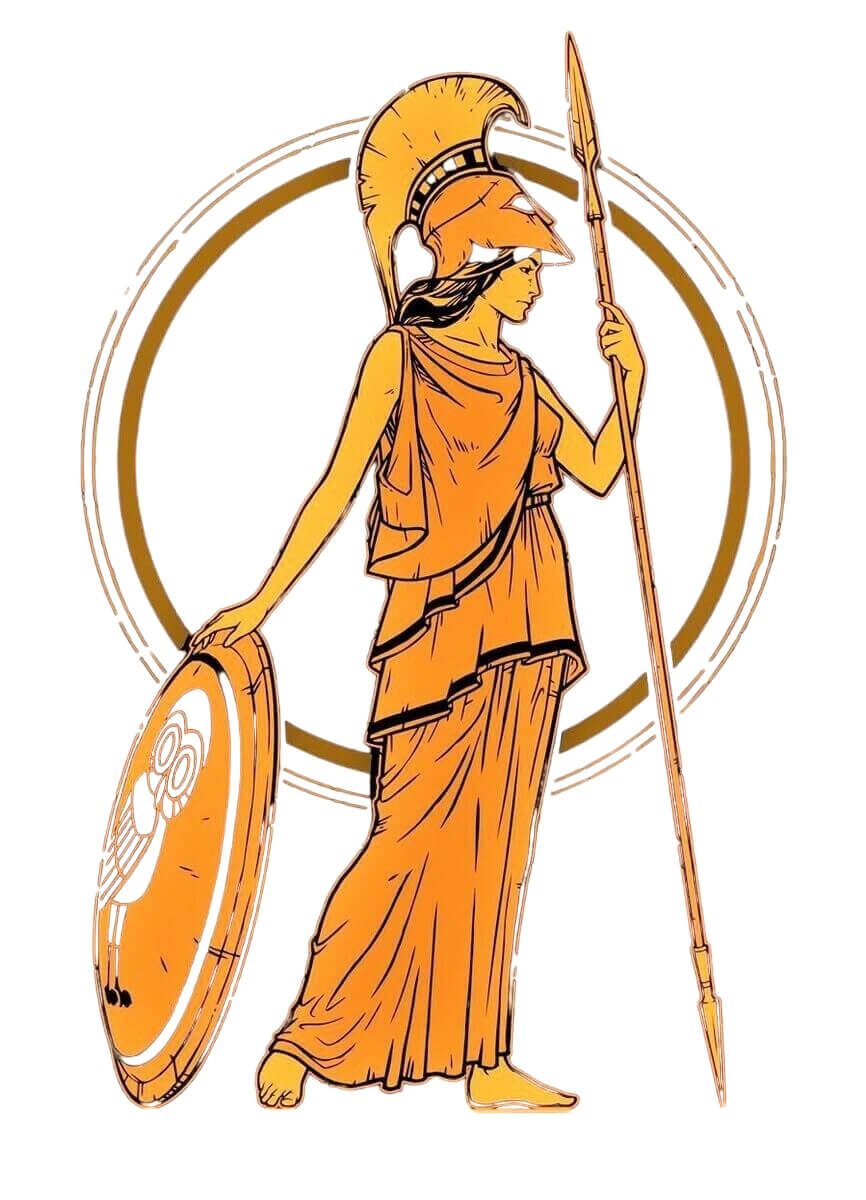Demeter: Greek goddess of the harvest and agriculture
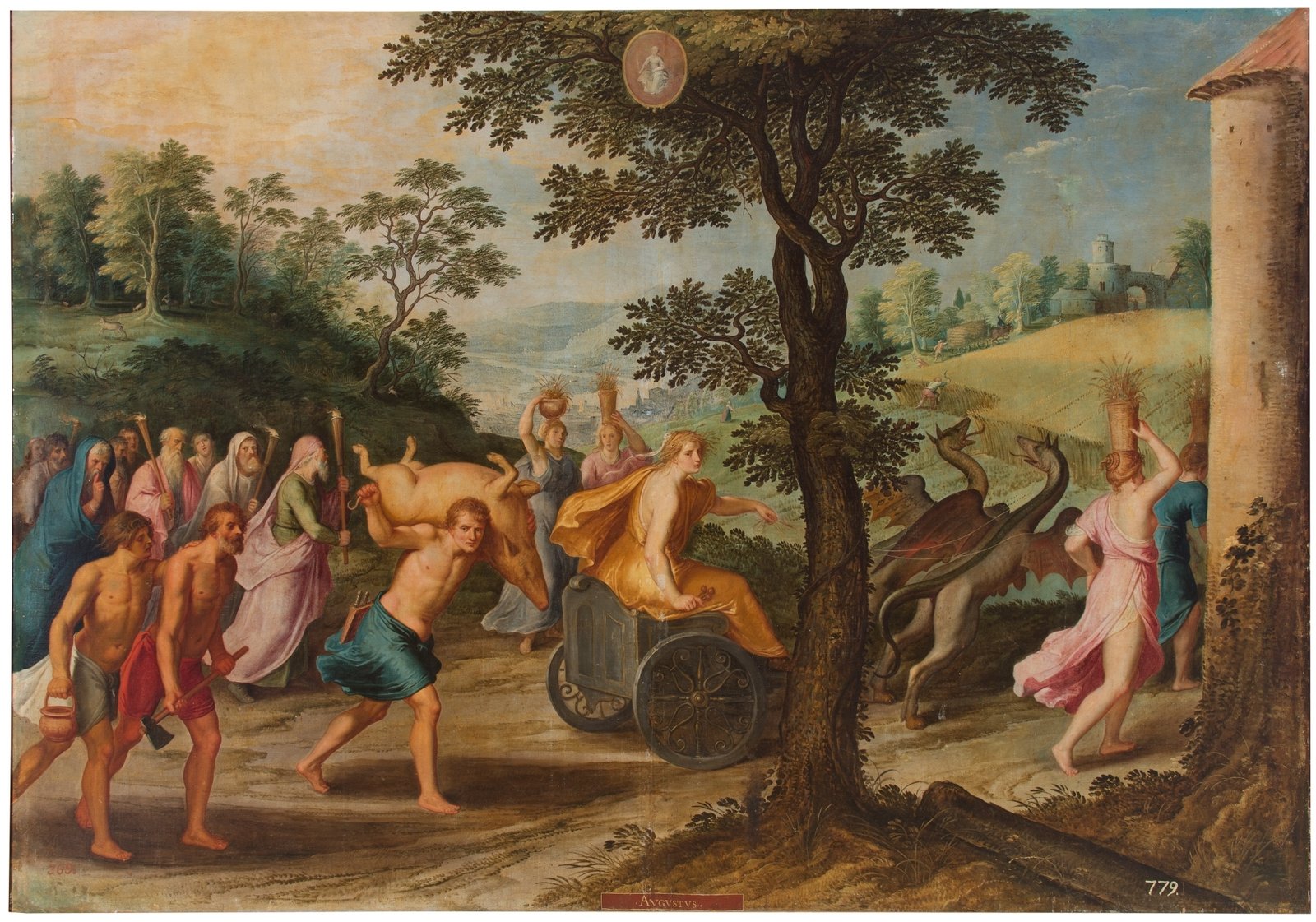
In Ancient Greek Mythology, Demeter was the goddess of harvest and agriculture, presiding over grains, crops and fertility of the earth. Hades the god of the underworld abducted her beautiful daughter, Persephone and forced her to be his consort and queen of the gloomy underworld. Since that moment on, when Persephone returns to the surface to rejoin her mother goddess, Demeter’s jubilance marks the splendid beginning of spring. Or according to other interpretation, the autumnal time of joyous harvest, when the stored grain of the old crops meets the grain of the new harvesting. Therefore it symbolizes the cycle of life and death and also the regeneration of life.
Demeter, her gifts and the Eleusinian mysteries
In Greek mythology Demeter was Zeus‘s older sister and one of the most revered Olympian goddesses. Her name translated means “Mother Earth”. That being so, the Greeks considered her as the patron goddess of agriculture and harvest, calling her Sito (“She of the grain”) and Chloe (“The green one”).
After having taught agriculture to people, Demeter weaned them from savagery. Insofar as she gave the Greeks reasonable usages and dictates of civilized society. Therefore, one of her names was Thesmophoros (“Bringer of Law”).
The ancient artists represented Demeter as a majestic, mature, beautiful woman. Her hair was the color of ripe wheat. A garland of wheat spikes hung on her neck and she always held fruits in her hands. The son of Demeter was the god Plutus, considered as the personification of wealth in ancient Greek mythology.
The abduction of Persephone
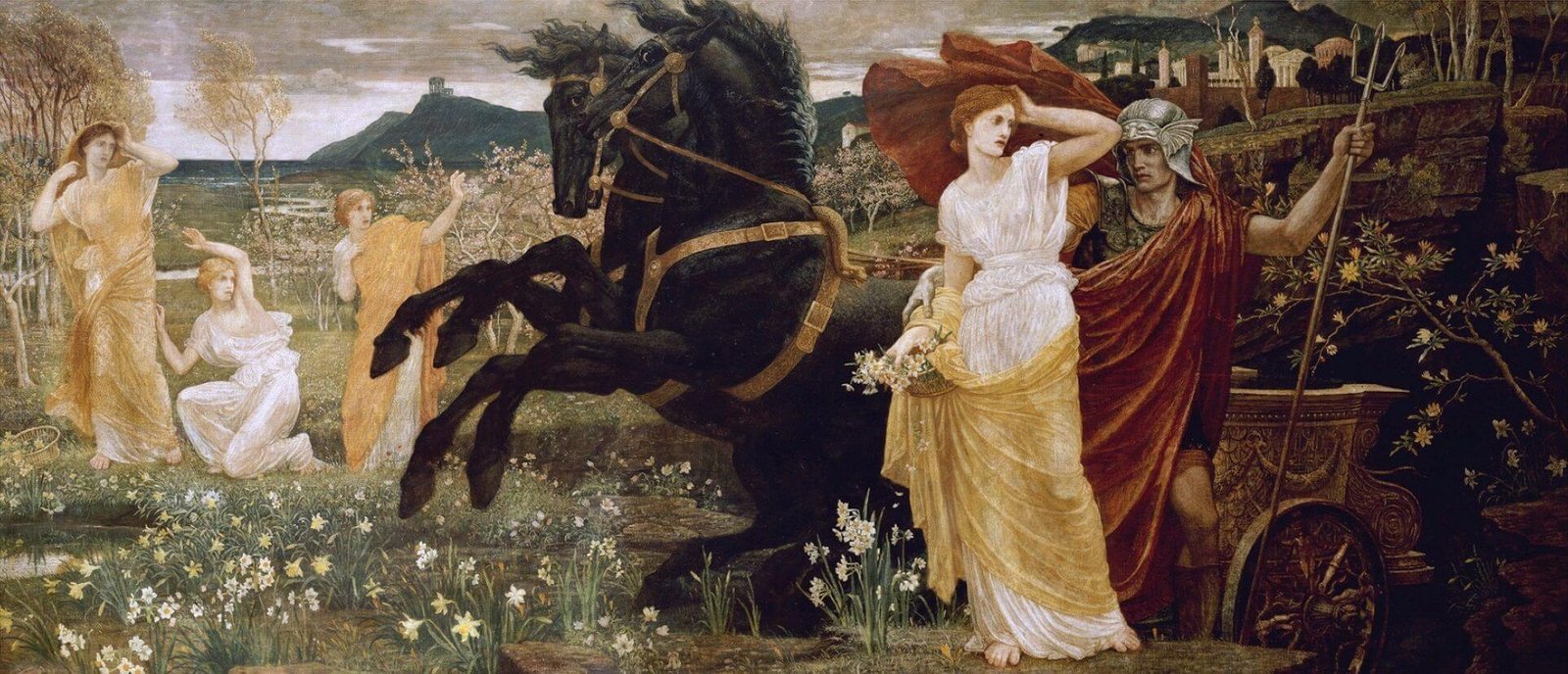
Along with her son Plutus, Demeter had a young daughter named Persephone, sometimes also called Kore, “The Maiden”. She was so beautiful that the formidable lord of the underworld himself paid attention to her. Knowing that the girl’s father was his brother Zeus, Hades asked him for her hand in marriage.
The king of Olympus permitted Hades to abduct Persephone, assuming that Demeter would never let her go to the Underworld. One day, accompanied by Oceanids, Artemis and Pallas, Persephone was picking flowers on a green blooming field. Suddenly she saw an awesome bloom, incomparable to nothing that could be found on Earth.
It was so white as snow, but the splendid edges of its petals blazed with bright flames and it had a breathtaking fragrance, which filled the air, beyond the sky and earth. Delighted with such a superb scent, Persephone stretched out her hand and plucked the flower. Nonetheless as soon as she did so, the earth opened up, forming a wide fissure around. Immediately afterwards the god Hades had rushed from it in a chariot drawn by black horses. He abducted Persephone and had descended with her to his lugubrious kingdom.
Demeter learns of her daughter’s fate and leaves Olympus
Alarmed by her daughter’s disappearance, Demeter began her frantic search. No one could tell her where Persephone had vanished to. Neither the immortal gods, nor people, nor forest animals or birds. Therefore, day after day Demeter wandered sadly along the roads of Greece.
Her clothes had torn and her beautiful hair was ruffled and covered with dust. The wheat spikes in her hands dried up and her eyes clouded. But no more tears could be found in them.
Finally, after a long time of wanderings, the all-seeing god Helios took pity on her and told her about Persephone’s abduction. Demeter discovered that Zeus permitted Hades to kidnap her daughter and went into rage.
Demeter in Eleusis: Demophon, son of Celeus
For a long time, Demeter wandered through different countries until she came to the city of Eleusis, where the king Celeus ruled. She sat down to rest under an olive tree by a roadside, looking like a decrepit old woman. It happened that the king himself gave a hospitable welcome to the goddess, disguised as a poor old woman.
He invited her to his palace and proposed her to nurse his newly born son Demophon. Demeter became attached to this child and every day rubbed his body with fragrant Olympian ambrosia, and at night, secretly from his parents, placed him in the flames of the hearth, burning out his mortal spirit. If the goddess had finished her work, Demophon would have been like the gods of Olympus. He wouldn’t have known neither old age nor death.
However, one night, the queen Metanira happened to see how Demeter was strengthening the boy and felt horrified. She thought that the nurse wanted to kill her child, and screamed threatened, accusing her of being a murderer. Such words enraged the great goddess. Plucking the child from the fire, she stopped the ritual and afterwards discovered herself as Demeter. Thereafter Demophon had lost the privilege to be immortal. But had become immortalized for life as a recipient of the hero-cult by ancient Greeks.
Persephone returns to her mother
Meanwhile Demeter was full of sorrow because of her missing daughter, the crops on the field wilted and the land became barren. Neither a single blade of wheat nor flower appeared on it. A terrible famine had begun. The dead were laying by the roads, and exhausted people roamed over the Entire Greece in search of food. Afraid of the extinction of all life on Earth, Zeus ordered Hades to return Persephone to her mother, sending Hermes to pick up the maiden.
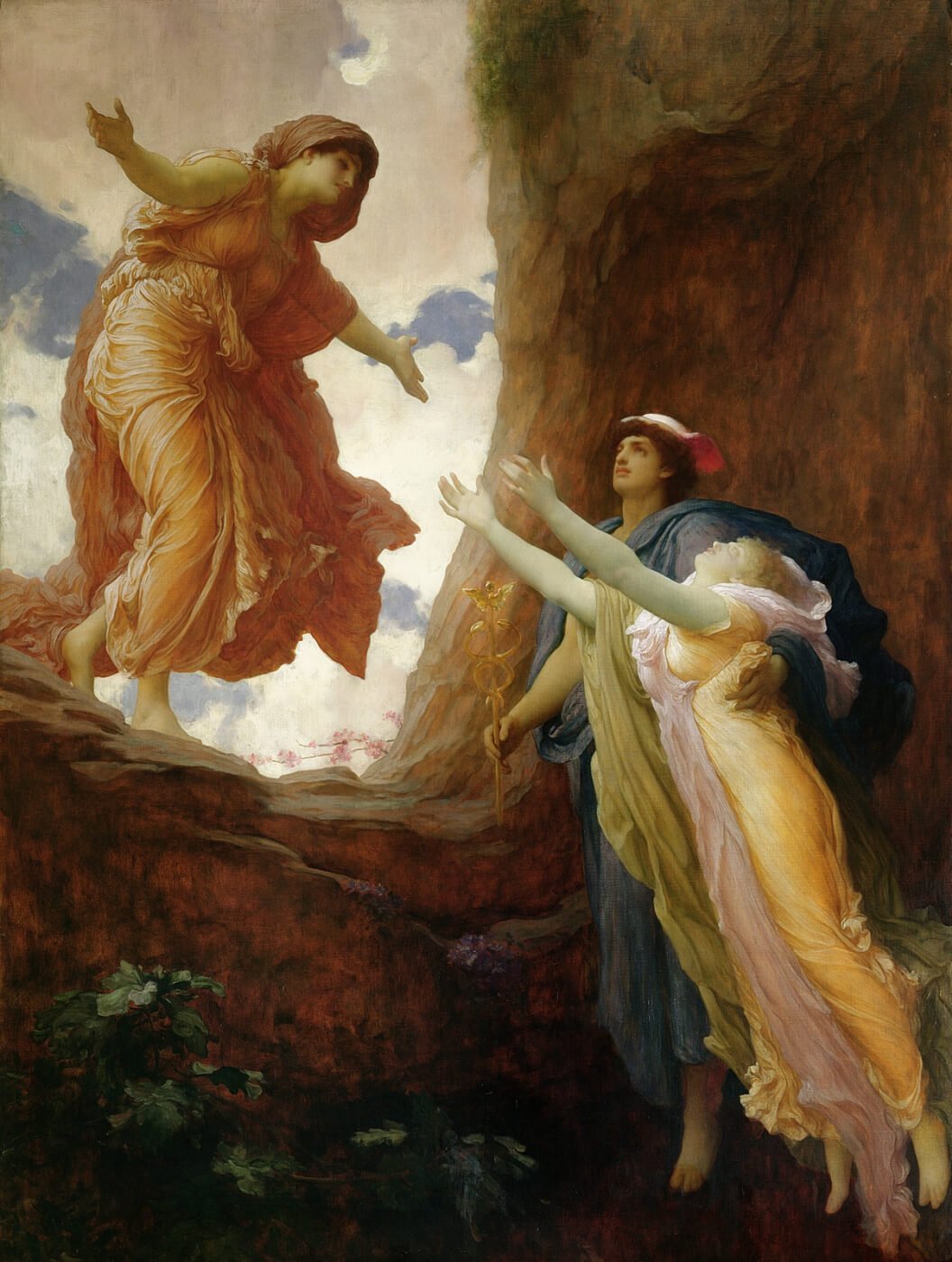
Reluctant to fulfill such an obligation, the king of the underworld had agreed to free the young goddess. However, before her early departure, he tricked her, with a deceiving invitation to eat the grains of a pomegranate. Demeter’s daughter had eaten them and was forever bound to the underworld. From that time on she had to spend several months of each year in the kingdom of Hades.
Thereupon, every year when the hot Mediterranean summer endangers the vegetation and the crops are being stored in jars (pithoi) underground, Persephone has to abandon Demeter, and go back with her husband to the underworld. At this time, she symbolizes the wealth of the grain, that had been preserved. A time after, at the beginning of autumn, when the corns of the old crop lay on the fields, she ascends from the realm of Hades and rejoins her mother in a joyous celebration of affection, life and harvest.
Thereupon, the new grain and the old one meet each other. To put it another way, the Greeks tried to explain and solve the reasons of droughts and other calamities. Hence they softened Demeter, through the celebration of harvest and joyful return of her cherished daughter.
In any case, according to another interpretation of the myth, the abduction of Persephone tried to explain the change of seasons. When Persephone has to return into the underworld, Demeter feels upset and saddened. For that reason, the vegetation begins to wither and the season of autumn has its beginning.
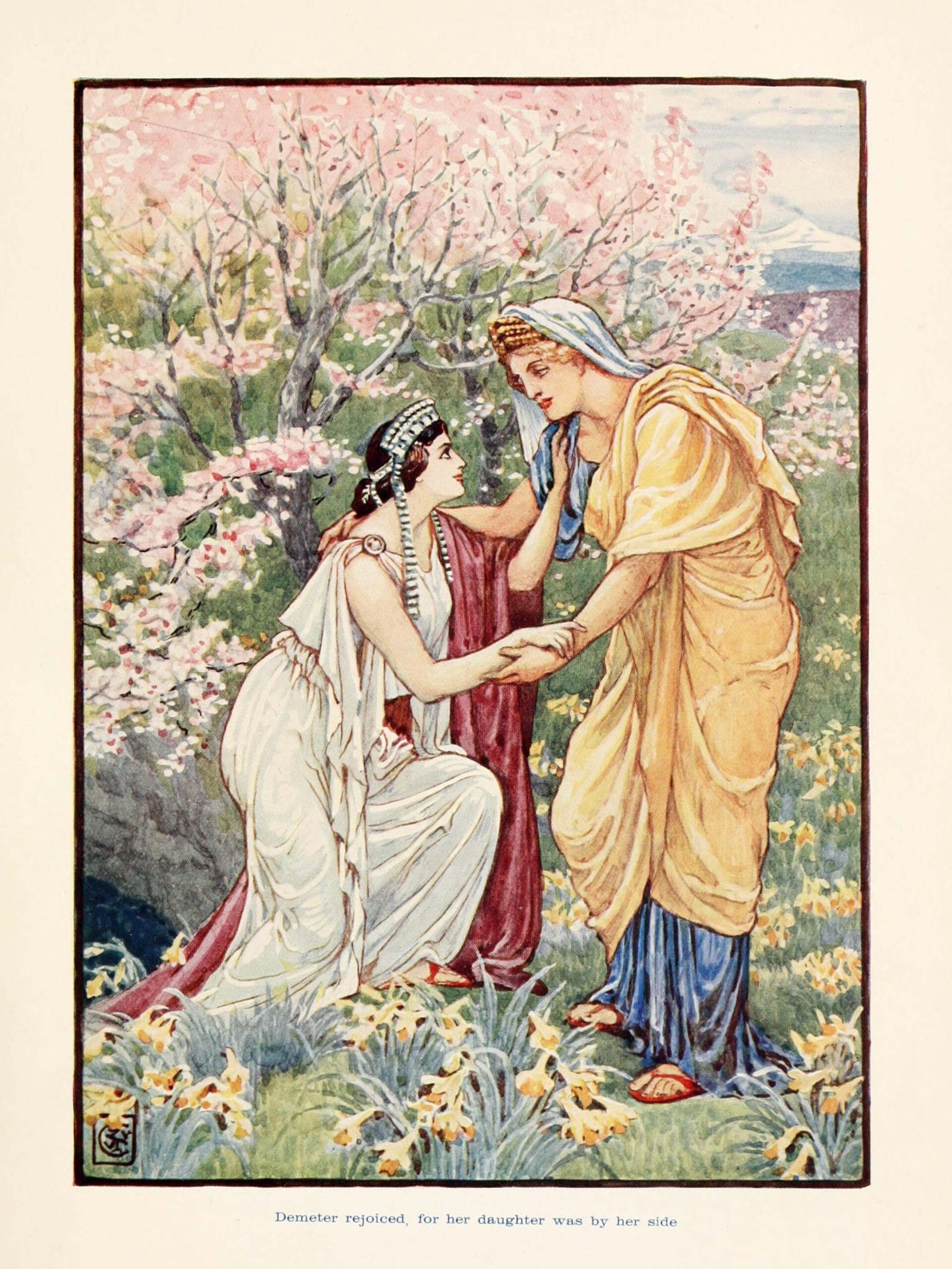
In contrast, when Persephone comes back to her mother, Demeter feels light-hearted and overjoyed. The flowers begin to bloom in a blissful game of colors and flourishing spring enraptures the entire world.
Demeter teaches people agriculture
By the time when Demeter found refuge in Eleusis it became her favorite city. She especially distinguished Triptolemus, one of the sons of Celeus. He was a little sick boy, but after having drunk Demeter’s breast milk had instantly grown to manhood and became strong and healthy.
It was him who taught agriculture to all the men in Greece. Once reunited with her daughter Persephone, Demeter gave him seeds to be sowed, a wooden plow and a golden chariot pulled by fearsome winged dragons. On this chariot Triptolemus traveled throughout the entire world. He had ploughed the earth everywhere and taught agriculture to people.
Eleusinian Mysteries
In memory of Demeter’s visit in Eleusis, the ancient Greeks celebrated Eleusinian Mysteries. Meanwhile the other Greek festivals welcomed all kind of guests, these celebrations had a strict code of secrecy. The participants were undergoing special rites of initiation and swore not to disclose what they would witness in the temple during the mysteries. The Greeks believed that a person dedicated to the Eleusinian mysteries, would obtain some kind of benefits in the afterlife.
